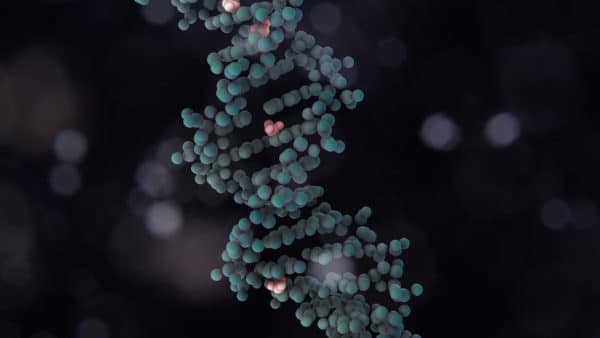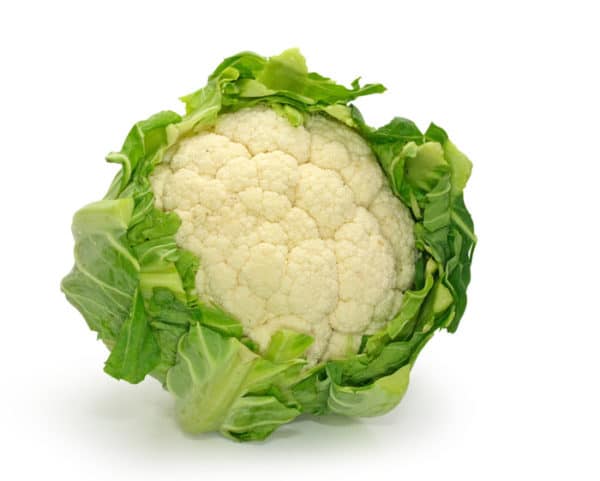
Food is intended to replenish your cells, nourish your organs, and give you the energy you need to do all the things in your life that bring you joy. Yet sometimes this process backfires and meal times leave you bloated, exhausted, and unmotivated.
So what goes wrong?
One of the often overlooked causes of feeling “bad” after eating is food allergies and food intolerances.
When your immune system mistakes good food for a foreign invader, it sets up a cascade of inflammatory reactions to “kill it”, leading to pain, inflammation, and dysfunction in your body.
Most people don’t even realize anything’s wrong… at first.
Even If You’re Not Breaking Out, You May Still Be Breaking Down
But what about the other kinds of food allergies – the insidious ones that contribute to chronic symptoms and health challenges? The problem with detecting these types of food intolerances is that the reaction is often not immediate, so it takes a lot of detective work to determine what foods are causing the problem.
Food allergies are tested for and managed by many alternative practitioners, yet there is a lot of confusion and misinformation about what they are, what causes food allergies, and whether these allergies can be overcome.
So, What’s Your Poison?
Your immune system is a double edged sword. The same reactions that can protect you from dangerous microbes can inflame and damage your essential body tissues and lead to chronic health issues.
What Happens When You Ignore Food Allergies and Intolerances?
Chronic over activity of your immune system can lead to problems like:
- weight gain
- depression
- joint pain
- fatigue
- headaches
- indigestion
- asthma
- eczema
- fibromyalgia
- autoimmune conditions
- autism
- attention deficit disorder
- and many more
So what causes your immune system to get confused and attack good food?
We’ll cover a few here and invite you to learn the details at a brand new, hot off the press, FREE teleseminar on January 3rd, 2012 called Turning Food Allergies Inside Out: Revealing the Causes, Culprits, and Cures. You’ll find the details below.
The Causes of Food Allergies
There are many causes of food allergies and intolerances, but here is a list of the most common (References are published below for further reading).
- Infancy Food Exposure: Exposure to foods other than breast milk during the first few months of life can contribute to food allergies. Your digestive tract was designed to be able to allow larger molecules through during early life so that your mom could nurse you, pass on the protective antibodies from her immune system, and protect you. Unfortunately, what also passes through her milk are her food antibodies too.
In addition, if you are fed anything other than breast milk in those early months, those openings in your digestive tract work against you and allow proteins from cow’s milk or soy, the most common foods in infant formula, to pass into your blood stream and create an immune reaction. (1) (2) Immunizations: If you were immunized, the goal was to create a protective immune response to the injected substances. Unfortunately, carrier substances injected with the immunizations include things like egg albumin, which can cause you to become allergic to eggs.(3)
- Antibiotics: Within the first year of life, intake of antibiotics has been associated with increased risk of food allergy. (4)
- Antacids: The use of antacids impair stomach acid production and leads to the poor digestion of proteins. These undigested proteins irritate the delicate lining of your intestine, eventually eroding it enough so that the larger molecules enter your blood stream and mount an immune system attack. (5) (6)
- Gluten: Gluten-containing foods inflame and damage your intestinal mucous membrane and result in Leaky Gut Syndrome. As a result large, undigested protein molecules enter your blood stream and your immune system attacks them. (7)
- Stress: Eating when stressed causes increased cortisol production, which shuts down your digestion and can lead to Leaky Gut Syndrome. (9)
- Sugar: Eating sugar disrupts normal intestinal flora and disrupts digestion. (10)
How to Tell if You Have a Potential Food Allergies or Intolerance
How do you know if food allergies may be contributing to your health concerns? Take this short self assessment quiz and find out for yourself:
- Do you feel tired after eating?
- Do you frequently clear your throat after meals?
- Do you feel like you need looser pants at the end of the day?
- Do you crave certain foods (like bread, cheese, and other snack foods) and feel the urge to eat more even if you feel full?
- Do you feel like your pulse and heart beat become rapid after eating certain foods?
- Do you have inflammation and pain for which you haven’t found a cause?
- Have you been diagnosed with an autoimmune disease?
- Do you experience belching, bloating, gas, or pain after eating?
- Do you have persistent extra weight in spite of a low calorie diet and exercise?
- Do you have asthma?
- Do you have difficulty focusing that comes and goes?
- Have you lost your motivation for things you used to enjoy?
- Do you need to urinate frequently?
- Do you have an irritable bowel?
- Do you have unexplained bouts of depression, anxiety, or irritability?
- Do you have frequent skin rashes, eczema, or psoriasis?
If you answered yes even to ONE of these, you might have an undiagnosed food allergy. If you answered yes to 3 or more you most certainly do.
For the full scoop on food allergies and how they are affecting your health, your energy, and your life, join me on January 3rd, 2012 for a free teleseminar:
Turning Food Allergies Inside Out: Revealing the Causes, Culprits, and Cures
Tuesday, January 3rd, 2012, 7:30 p.m. Central
This food allergy teleseminar will cover:
- What’s happening in your body that causes your immune system to start attacking your food
- The step-by-step sequence of events that occurs during a food allergy reaction
- The most common food triggers
- The role of your digestive tract in causing and clearing food allergies
- Elimination diets and how they work
- Lab testing for food allergies
- Retesting culprit foods
- Enjoying your food, loving your life
I’ll go into even more detail about the effects of food allergies, so be sure to join us:
Register HERE!
If you’re tired of being tired, unfocused, and uncomfortable, or if you are sick of the weight that just won’t budge despite your best efforts, you owe it to yourself to explore whether food allergies are contributing to your ill health.
Learn how to become energetic, happy, and productive once more.
Food Allergy References
(1) Analysis of Intestinal Flora Development in Breast-Fed and Formula-Fed Infants by Using Molecular Identification and Detection Methods. Harmsen, Hermie J. M.; Wildeboer-Veloo, Alida C. M.; Raangs, Gerwin C.; Wagendorp, Arjen A.; Klijn, Nicolette; Bindels, Jacques G.; Welling, Gjalt W. Journal of Pediatric Gastroenterology & Nutrition: January 2000 – Volume 30 – Issue 1 – pp 61-67.
(2) Influence Of Maternal Good Antigen Avoidance During Pregnancy and Lactation on Incidence of Atopic Eczema in Infants. R. K. Chandra; S. Puri; C. Suraiya; P. S. Cheema. Clinical & Experimental Allergy: Volume 16, Issue 6, pp 563-569, November 1986.
(3) Is Infant Immunization a Risk Factor for Childhood Asthma or Allergy? Trudi Kemp; Neil Pearce; Penny Fitzharris; Julian Crane; David Fergusson; Ian St. George; Kristin Wickens; and Richard Beasley. Epidemiology Vol. 8, No. 6 (Nov., 1997), pp. 678-680 (article consists of 3 pages) Published by: Lippincott Williams & Wilkins.
http://www.jstor.org/stable/3702662(4) Antibiotic Administration Early in Life Impairs Specific Humoral Responses to an Oral Antigen and Increases Intestinal Mast Cell Numbers and Mediator Concentrations. S. Nutten; A. Schumann; D. Donnicola; A. Mercenier; S. Rami; and C. L. Garcia-Rodenas. Clin Vaccine Immunol. 2007 February; 14(2): 190-197. Published online 2006. December 6. doi: 10.1128/CVI.00055-06.
(5) Anti-Acids Lead to Immunological and Morphological Changes in the Intestine Of BALB/C Mice Similar to Human Food Allergy. Isabella Pali-Schöll; Ali Ö. Yildirim; Ute Ackermann; Tanja Knauer; Christoph Becker; Holger Garn; Harald Renz; Erika Jensen-Jarolim; Heinz Fehrenbach. Experimental and Toxicologic Pathology: Volume 60, Issues 4-5, 5 August 2008, pp. 337-345.
(6) Food Allergy: Recent Advances in Pathophysiology and Treatment. Annual Review of Medicine Vol. 60: 261-277 (Volume publication date February 2009). Scott H. Sicherer and Hugh A. Sampson. The Elliot and Roslyn Jaffe Food Allergy Institute, Division of Allergy and Immunology, Department of Pediatrics, Mount Sinai School of Medicine, New York, New York 10029-6574.
(7) Intestinal Permeability in Patients with Eczema and Food Allergy. P.G Jackson; R.W.R Baker; M.H Lessof; Jean Ferrett; D.M Macdonald. The Lancet Volume 317, Issue 8233, 13 June 1981, pp. 1285-1286.
(8) Stress and Intestinal Disease. By Adam Moeser. http://www.cvm.ncsu.edu/ccmtr/documents/Moeser.pdf
(9) Your Hidden Food Allergies are Making You Fat. Rudy Riera, MD and Roger Davis Deutsch.
(10) The Pulse Test. Arthur F. Coca.
(11) Dr, Mandellss 5 Day Allergy Relief System.
(12) Food Allergy Survival Guide. Vesanto Melinda MS, RD.
Share this:

Are you feeling stuck?
Do you feel as if something is missing from your practice that's keeping you from delivering breakthrough outcomes for your clients?.
Recent Posts
Our Programs
Nutritional Endocrinology Practitioner Training (NEPT)
The Mastery and Certification tier is our flagship program and provides everything you need to feel confident as a practitioner who knows how to get results that lead to healthy and happy clients.
Functional Assessment Mastery
Explore the relationships between the most important hormones and their relationship with nutrition.
Functional Nutrition Mastery
Learn how to support your clients to eat and supplement in a way that reduces and eliminates chronic symptoms.
Medical Disclaimer: The information on this website is not intended to replace a one-on-one relationship with a qualified health care professional and is not intended as medical advice. It is intended as a sharing of knowledge and information from the research and experience of Dr. Ritamarie Loscalzo, drritamarie.com, and the experts who have contributed. We encourage you to make your own health care decisions based upon your research and in partnership with a qualified health care professional.
Disclosure: Sometimes (but not always), when I share resources in my programs, newsletter, and on my website, I'm using an affiliate link, which means I do make money if you buy. My credibility is extremely important to me; therefore, I only endorse the products, services, and people I believe in. DrRitamarie.com is independently owned and the opinions expressed here are my own.
Click here to see our Privacy Policy.











[…] The Dangers of Undiagnosed Food Allergies: Breaking Down Instead of Breaking Out […]
[…] you experience discomfort and inflammation. We generally refer to these types of reactions as food allergies or […]
Can we got allergies from food also?
Can you please let me know of future seminars about allergies? thanks. Nuryan Miller
[…] Dec 16, 2011 … Food is intended to replenish your cells, nourish your organs, and give you the energy you need to do all the things in your life that bring you … [more] […]
[…] Allergic reactions vary from one person to another. One person allergic to soy may develop a rash. Another person allergic to the same substance may develop irritable bowel syndrome. […]